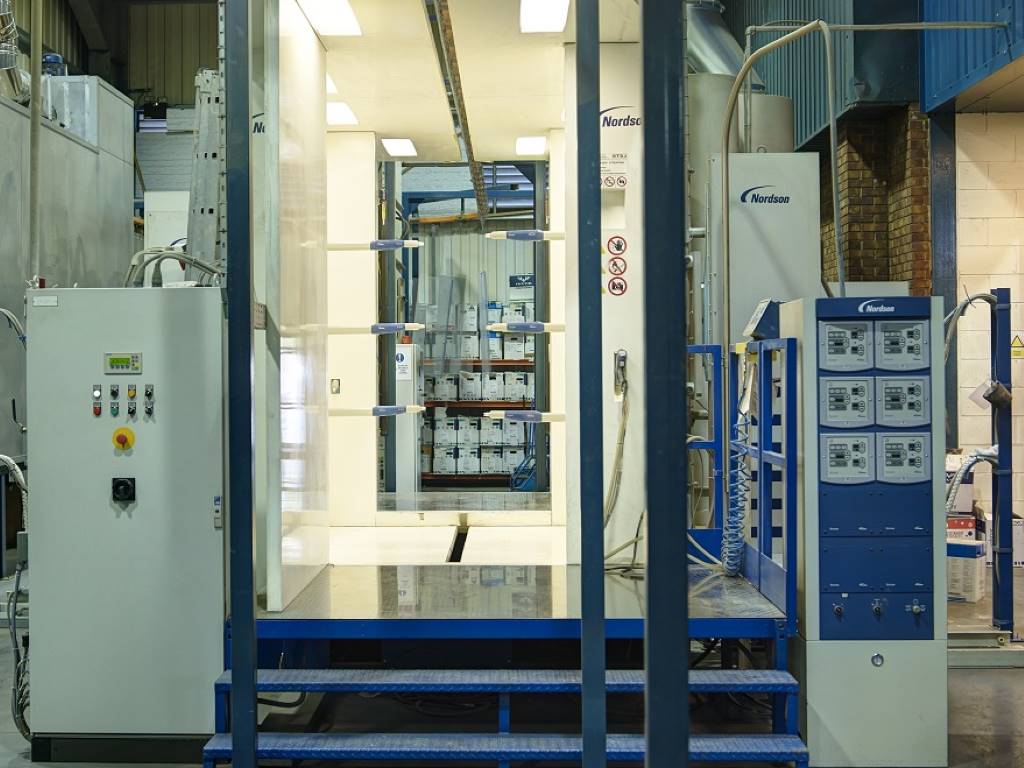Call for action
All of us involved in manufacturing are more than aware of the skills shortage and the potential effects it could have on our industry, but
em is perhaps more far reaching than we think. I received this editorial from Chris Charman who is chief executive of the International Marine Contractors Association (IMCA). The offshore industry seems to be suffering as much as any from the skills crisis.
[gallery columns="6" ids="342,346,347,348"]
We need to enlist your help!
As a reader of Production Engineering Solutions you are obviously a round peg in the proverbial round hole, happy with your role in the UK manufacturing industry – but we need you to enthuse a different sort of engineering practitioner.
IMCA is the international trade association representing companies and organisations engaged in delivering offshore, marine and underwater solutions. Our core purpose is improving performance in the marine contracting industry by championing better regulation and enhancing operational integrity. As marine operations move to ever-greater water depths, our Remote Systems & ROV (remotely operated vehicle) Division assumes increasing importance within the association and the wider offshore community. It is on their behalf that I write.
Much has been reported on the aging workforce in the offshore oil and gas industry and the search for an almost endless supply of engineers to fill a vast number of roles. Our Remote Systems & ROV Division focuses on all aspects of equipment, personnel and operations relating to remotely operated systems used in support of marine activities; and is currently dealing with a crucial issue – a global shortage of personnel.
Well over a third (339) of IMCA’s 970 member companies in more than 60 countries are members of the Division, which speaks volumes about the global expansion of ROVs. No wonder energy industry market research specialists Douglas-Westwood has predicted total work-class ROV operations expenditure of $9.7 billion for the five year period 2013-2017 – an increase of nearly 80% over the previous five year period. They see strong ROV demand in the new deepwater provinces offshore East Africa, followed by Latin America, which will see the strongest growth of all, and Asia.
IMCA members use ROVs to perform tasks such as: drill support; subsea construction; for inspecting pipelines, structures and cables; operating and maintaining valves and other moving parts on subsea manifolds; trenching for submarine cables and pipelines; seabed surveys; inspection and maintenance of platforms; and enabling video observation of both divers and underwater equipment.
Naturally the expansion of the global ROV fleet brings with it a huge challenge. There is currently an ongoing shortage of trained and skilled ROV personnel. There are estimates that at least two thousand pilot technicians will be required in the next three to five years to keep up with demand and general agreement that this could be a conservative estimate.
We need you to spread the word to all likely candidates pointing them towards www.imca-int.com/careers. Here’s a quick link http://bit.ly/1rJhCzM to the ROV Pilot/ Technician Factsheet; and another to get a glimpse into a ROV pilot’s life http://bit.ly/WL5aTw and finally more on ROVs themselves http://bit.ly/UHTbnJ so you can whet appetites!
Under discussion
The shortages were discussed in London at the Oceanology International exhibition and conference in March at ‘ROV Training & Competence: Global approach, local delivery’ organised by IMCA, with further discussion at our workshop in Macaé, Brazil.
It was agreed that a common approach to ROV training was needed. An industry steering group, coordinated by IMCA, was proposed to progress and sustain existing initiatives already underway; and to develop future projects and facilities around the world. Now our Remote Systems & ROV and Competence & Training Committees are taking this forward by establishing the IMCA ROV Training Steering Group (TSG) to develop and manage ROV training requirements for the global IMCA membership.
In asking for your help in tracking down suitable candidates, it is important that I stress two particular aspects of IMCA’s work. First the sterling work performed by the association in producing guidance to which the global marine contracting industry can work – in all there are over 200 documents designed to ensure ever-greater safety and efficiency levels offshore.
Secondly, the importance that IMCA places on competence. Back in 1999 the association produced a competence assurance and assessment guidance framework; and we are encouraged by the ever-increasing take-up of competence schemes both in the UK and around the world. Promotion of our framework continues to be important globally.
In due course it may become impossible to work offshore without demonstrating competence, eg. by holding a record of competence/logbook, in the same way as medicals, offshore safety and survival certificates are prerequisites. IMCA publishes 16 subject-specific log books aimed at enabling those within each specific field to log their actions and thus their competence levels. Continuing professional development (CPD) programmes associated with the competence framework advance careers too.
IMCA will continue to produce good guidance to help the industry; and is determined to work tirelessly with determination and purpose to ensure that this vital sector of the subsea industry is fully staffed by highly competent pilots and support staff who relish working in often challenging new frontiers delivering safe and efficient ROV operations.
IMCA www.imca-int.com
Images:
Images 2/3 courtesy of Helix Energy Solutions Inc.
Image 4 courtesy of Harkand Andrews Survey












